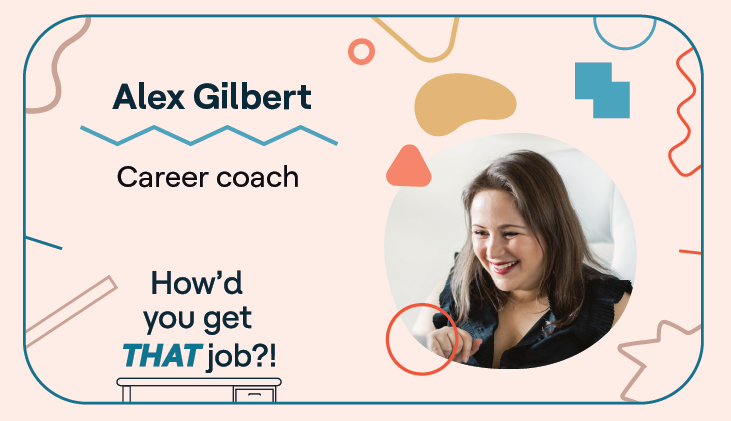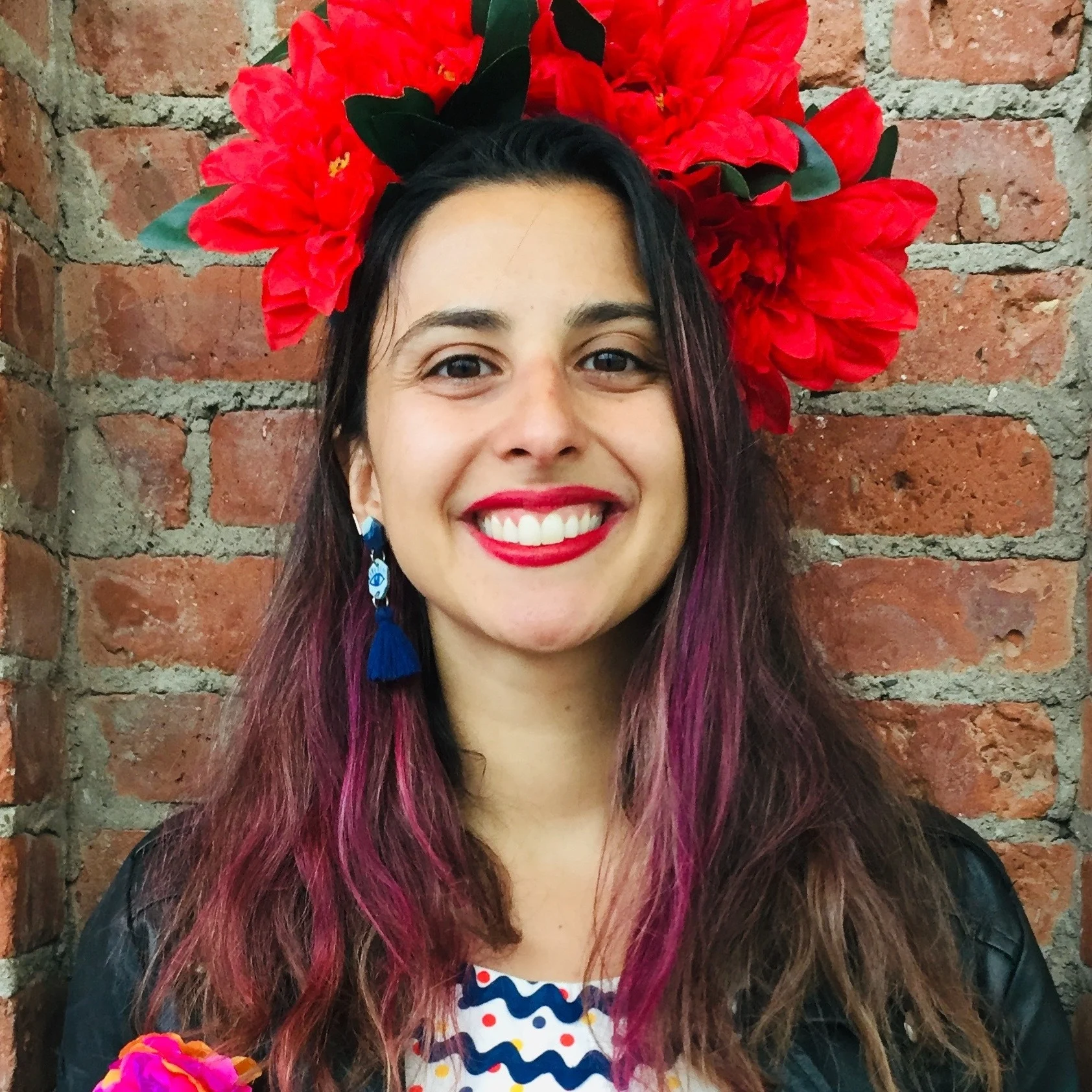Stay in the know
All our latest podcasts delivered right to your inbox.
Alex Gilbert is a career coach and consultant with ADHD and dyslexia. She helps people with learning and thinking differences navigate their day-to-day work — and play to their strengths. After working in leadership development for years, she pursued her dream and started her own coaching business, Cape-Able Consulting.
Because Alex was diagnosed at age 8, she had accommodations throughout school. During college, she realized that all of these supports would disappear when she graduated. So she started a mentorship program at her university to help those with learning and thinking differences prepare for “real” life. She’s been in love with coaching others ever since. Now, Alex helps others learn about how they work best, try out tools, and advocate for themselves.
Listen to hear more about red flags in the workplace, and how to tell the difference between challenging and hard.
Related resources
Episode transcript
Alex: If you have a learning disability or you have ADHD, and you've looked up every article there ever was written on how you can manage your learning disability or ADHD in the workplace, and you've tried every one of them and they don't work for you, you think, "There's something wrong with me." And the truth is, there's nothing wrong with you.
Eleni: From the Understood Podcast Network, this is "How'd You Get THAT Job?!," a podcast that explores the unique and often unexpected career paths of people with learning and thinking differences. My name is Eleni Matheou and I'm a user researcher here at Understood. That means I spend a lot of time thinking about how we find jobs we love that reflect how we learn and who we are. I'll be your host.
Alex Gilbert has ADHD and dyslexia. She's the CEO, founder, and coach at Capable Consulting. She works one-on-one with people with learning differences like her own to customize the right coping strategies for them. From creating a mentorship program for students with disabilities at her university while studying there to working in program and leadership development for over a decade, her experiences display her passion for disability inclusion. She has endless insight on choosing and creating the right working environment for you and advice based on her own lived experience. Thank you for being here, Alex.
Alex: Thanks for having me.
Eleni: So, you have ADHD and dyslexia and it's part of your business. You work with people with similar challenges. So, I thought a good starting point would just be to tell us about your business and who you typically work with.
Alex: Sure. So, I started my business in 2021 after I had been laid off from my job due to COVID. And this is something that I have dreamed about doing since I was 16 years old, because I was really privileged to be diagnosed with dyslexia and ADHD at 8 years old and had resources all the way through college.
And when I was starting to apply to colleges, I had this resource room teacher who basically said to me, "You're not really going to amount to anything, because on paper you represent somebody with a lot of disabilities." And I kind of looked at her and said, "Are you being serious right now? Because I also represent a lot of other things that's also on paper. I'm president of this club on leadership in this group. That's also on paper. How do you not see my skills as something that's valuable or see me as someone worthy of your time?"
And that kind of, that messaging really stuck with me through my whole college experience and my career. And so when I was laid off, I said, "You know what? It's time." I really wanted to find new ways to support people who are in this space, who could use that extra boost of confidence to know that they had value, to know that they had amazing, like skills and strengths, that if we just leaned into them and they had a little extra support, that they could do that. There's really very little resources out there for adults. That's my bread and butter, is working with adults who are in the workplace or struggling at home to manage it all on a day-to-day basis.
Eleni: Yeah, and that's such a great synergy with what we're trying to achieve at "How'd You Get THAT Job?!" too, because there is definitely like a gap there. It's like we know that you don't grow out of a learning disability, so you know, why should resources end?
Alex: Yeah, exactly. I mean, it's like apples and oranges. I was trying to explain this to one of my clients yesterday. I said, "Yes, I had resources, you know, in high school. What does extra time on a test look like in the workplace?" Like, how do you explain I need extra time. You don't even know how to have those conversations, let alone know what resources need to be used in these spaces.
Jobs should be challenging and not hard. And when you are doing a job where every aspect of your job is hard, it leads you to feel burnt out, frustrated, maybe you even get fired from your job because it's really just not in your wheelhouse of things that you should be doing and you're not really leaning into those strengths. Challenging means you can take something that's really interesting.
Like right now what I'm doing every day is I'm being challenged by new clients who have new situations, and every day is something exciting to me of how can we problem-solve together? I don't find it hard. I'm not sitting here doing, you know, math problems and Excel every moment of my day. Do I do that as a small business owner? Of course I do. But that's not the forefront of what I do.
Eleni: Yeah, I love that. Would you say that your problem-solving skills and that strength comes directly from your ADHD and dyslexia? Do you think it's related?
Alex: 100 percent. I've had to learn to adapt to a lot of situations constantly, which is what a lot of people with learning disabilities and ADHD and, you know, executive dysfunctioning and you name the disability — like insert here — you're constantly learning how to adapt and figure out how you can make this situation work for you.
So, part of it was the skill set that I had to be able to problem-solve quickly. And part of it was the environment that I was constantly in to figure it out. But that said, those became my strengths.
Eleni: You mentioned that you have a lot of different types of people coming to you. And you know, one of the things that you enjoy is that like every person is different. Are there certain types of people that you see more often or certain reasons that people are more likely to come to you?
Alex:This is one of those things that I could tell you from the beginning of when I started my business, what I thought I was going to get is not at all what I got. But it's OK, because I'm learning and adapting and getting to know other people and other pain points for people. I thought when I would start my business that I was going to be talking to people who were similar to me in the sense that they had resources and it was kind of pulled out from under them, like the rug was pulled out from under them and they didn't know how to manage in the workplace.
What I'm actually seeing now, I would say 95 percent of my clients are people who are recently diagnosed with some type of learning disability or ADHD, and they're kind of looking to me and saying, "OK, now I have this diagnosis, now what? What do I do? Where do I start? Because the diagnosis is in my hand, but that means nothing if I can't do anything differently."
Eleni: Yeah, interesting. And what do you think is particularly unique about having a more recent adult diagnosis? And how do the challenges kind of present differently when that's the scenario?
Alex: There is a tremendous amount of masking that has happened subconsciously, because you are living your life not knowing there's something wrong, but at the same time knowing there's something wrong and being frustrated that you can look around and see, "How did someone just do that in like 20 minutes when that just took me 2 hours?" That sits with you really deep.
And that emotional aspect of it is really shameful. You know, you were constantly maybe called lazy or stupid, you know, again, in certain negative connotations that you can put in there not only externally, but what you're telling yourself because you don't know something is wrong.
So, a lot of the times when I'm talking to people, it's trying to unpack all of these pieces of their life that is really overwhelming and kind of putting the pieces back together to say, "You know what, this isn't me. This was a disability that I didn't know I have. But how can we get to the root of what was challenging so that we can move forward and make it easier for us and erase a lot of that shame?"
Eleni: Yeah, we've had a few ADHD coaches on the show, and it sounds like you focus more broadly on like learning and thinking differences, and it seems like a lot of those courses can apply to people with a variety of differences.
Alex: Absolutely.
Eleni: Do you change your coaching methods based on like the type of learning and thinking difference you're seeing?
Alex: I mean, you can come to me and tell me these are your learning disabilities, or this is your ADHD diagnosis, and I kind of have that in the back of my head as we're trying to create structures and programs for the individuals. But I also want to give them a space to see their strength and their value. And a lot of the times when you are coming and getting a diagnosis, you're focused on the diagnosis itself and all the weaknesses.
So, the actual diagnosis itself is less important to me. It's more that I'm creating something that's individualized for you. And this again comes from over a decade of program and leadership development. And I coach people on something called best principles versus best practices, because best practices assumes everyone can do the exact same thing and end up with the same results.
So, if you have a learning disability or you have ADHD and you've looked up every article there ever was written on how you can manage your learning disability or ADHD in the workplace, and you've tried every one of them and they don't work for you, you think, "There's something wrong with me." And the truth is, there's nothing wrong with you. They're very generalized. Those programs can be wonderful for many people. But maybe one part of it works and not the other. So, let's dissect it. Let's figure out what part of that situation works so that we can apply it to you.
Eleni: Yeah, that's great. And it makes a lot of sense, too. You mentioned a few times that you were lucky enough to be diagnosed very early, when you were 8, and you had all these resources throughout school and college and then you got to the workplace and you realized, "Oh, like what does it look like?" How did you cope then? How did you kind of figure out like what you needed as you entered the workplace? And then how do you now pass that knowledge on?
Alex: While I was at Indiana University, I created a mentor retention program for students with disabilities to make sure that they graduate and they didn't fall behind. I had trained 50 different students on how to mentor other people, how to learn, how to advocate. I taught a hundred students on how to advocate for themselves in the classroom. So I thought, "I got this." I'm going to the workplace. I know exactly how to advocate for myself. I know how to teach other people how to advocate. I was not.
And so, I was, I think I was really like hit in the face very hard because it's so different. And I couldn't label specifically why it was so hard for me to be in this job. But when I think about everything about my first job, I was in a small office with five people, and I was the first desk that you saw. Everyone who came to the office came to ask me a question because, you know, that's the first person they saw. I asked if I could have noise-canceling headphones and I was told no because it would look rude if I was the first person you saw and I was wearing headphones. And I was like, one, I didn't know that that was illegal. But, you know, I'm 22 years old, I don't know what that looks like.
I was so anxious because I couldn't finish my work on time. And I would stay late and I would try and come in early. I remember my now husband, he was my boyfriend at the time, I remember saying to him, "I'm like, I'm getting all of these migraines. Like, what if there's something wrong with me?" I just like, wanted, I wanted answers. And when I thought about it, I was like, "Oh, I'm depressed. I'm depressed."
And when I was talking earlier about what it was like to have all of these different careers, those were the moments where I thought I was being pulled further away from my career experience when really it was pulling me closer. Because if I can connect to that feeling that people are having, that overwhelm, that depressed feeling, that frustration, I couldn't do my job well.
Eleni: Well, thank you for being vulnerable and sharing that and being able to reflect back on that and really be able to take something away from it that, as you said, has now actually brought a lot of empathy to your current work.
Alex: Totally.
Eleni: I'm glad something good came out of it.
Alex: Yes. Definitely.
Eleni: Yeah. So, when you think back to those moments, are there any like tools or supports that you wish you had early in your care, or even with having like all of those advocacy skills? What was still missing for you?
Alex: I would have really appreciated someone talking to me about what success looks like in the workplace, and what those accommodations could have looked like. Because it, had I been in that same job, I would have asked to have not physically been in that office situation that I was in. There were several offices upstairs. I would have asked if I could have been a part of that. I would have thought a lot harder on the fact that I was asking for noise-canceling headphones, because that was an accommodation that was legally my right to ask.
I would have asked to possibly change my work hours and I would have come in maybe earlier to do my work and left earlier in the day, because the end of the day was when it got really even noisier.
There were so many different pieces that I could have asked that might have been red flags that I didn't know. And the other part of it is knowing what kind of manager is going to help you succeed. And when I talk to people in the course about getting to know what their needs are, thinking about the professors that were the most accommodating, the most supportive. What about your experience with them, your communication style, worked for you?
Eleni: Are there any like tangible tools that you recommend?
Alex: I love Grammarly and Speechify, and I wish that I had known about that when I was actually in the workplace because that would have saved me a lot of grief. I had adaptive technology when I was in college, so when I had to read really long paragraphs, my books, my textbooks were read to me. Speechify does the same thing with your emails, with your internet browser. If you got something in person and you wanted to take a picture of it and it would still read it to you. I think that's a really great tool that I think should be available to everybody.
Grammarly I think is similarly really important to have because people who have dyslexia or have ADHD, maybe you send emails impulsively. Is that the tone that you wanted to send? Did you miss like several words? Did you miss attaching something when you said you were going to attach something?
Eleni: I love that. I thought a nice way to wrap up would be, you know, just to ask you, like, what was the number one message that you wanted to convey to our listeners?
Alex: I often try and remind people of what they're capable of, and we have so many strengths and we have so much value to bring. And I want people to feel empowered by their skills and their strengths and really be able to prove people wrong.
And that has always been my mantra kind of growing up of wanting to prove people wrong, that just because I was dyslexic or ADHD didn't mean anything, that I wasn't I wasn't going to accomplish my goals. Like just watch me.
Eleni: I love it. Thank you. Thank you for sharing all of your amazing knowledge and for being on the show.
Alex: Thank you for having me.
Eleni: You've been listening to "How'd You Get THAT Job?!" from the Understood Podcast Network. The show is for you. So we want to make sure you're getting what you need. Email us at thatjob@understood.org with your thoughts about the show. Or maybe you'd like to tell us how you got THAT job. We'd love to hear from you.
If you want to learn more about the topics we covered today, check out the show notes for this episode. We include more resources as well as links to anything we mentioned in the episode.
Also, one of our goals at Understood is to help change the workplace so everyone can thrive. Check out what we're up to at U.org/workplace. That's the letter U dot org slash workplace.
Understood.org is a resource dedicated to help people who led and think differently discover their potential and thrive. Learn more at Understood.org/mission.
"How'd You Get THAT Job?!"is produced by Margie DeSantis and edited by Mary Mathis. Briana Berry is our production director. Our theme music was written by Justin D. Wright, who also mixes the show. For the Understood Podcast Network, Laura Key is our editorial director, Scott Cocchiere is our creative director, and Seth Melnick is our executive producer. And I'm your host, Eleni Matheou. Thanks again for listening.
Host
Eleni Matheou
leads user research for Understood. She helps Understood to center its work on the lived experiences and voices of people who learn and think differently.
Latest episodes
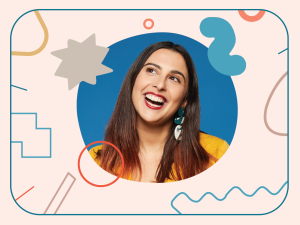
June 28, 2023
In the series finale of How’d You Get THAT Job?!, host Eleni Matheou unpacks what we’ve learned about how people thrive at work.

June 14, 2023
Nathan Friedman is the co-president and chief marketing officer of Understood.org. And he has dyslexia and ADHD. Learn how he got into the C-suite.
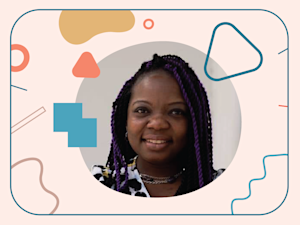
May 31, 2023
Dr. Loucresie Rupert is a child, adolescent, and adult psychiatrist with ADHD. She didn’t have an easy time getting her diagnosis as a Black woman.
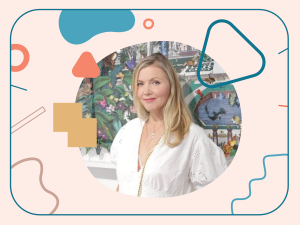
May 17, 2023
Kristjana Williams is a London-based Icelandic artist with dyslexia. She wasn’t diagnosed until she was 25, and now she has her own studio.

May 3, 2023
Aideé Chávez Frescas has ADHD, and is a senior social media manager at Understood. Her posts help end stigma and show others they’re not alone.
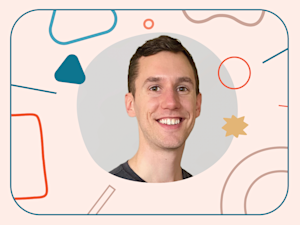
April 5, 2023
Dan Reis was diagnosed with ADHD during the pandemic. Now, he’s made it his mission to explore coping strategies to help him get his work done.
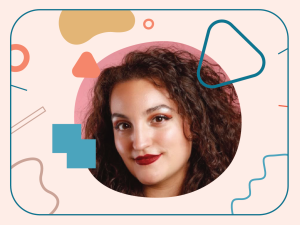
March 22, 2023
Rachel Basoco’s two jobs keep things interesting for her ADHD. She works full time at Fidelity, and part time at 11:11 Media, Paris Hilton’s company.
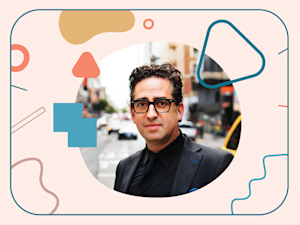
March 8, 2023
Gil Gershoni says that everything he does is dyslexic. He founded the branding firm Gershoni Creative and hosts the Dyslexic Design Thinking podcast.
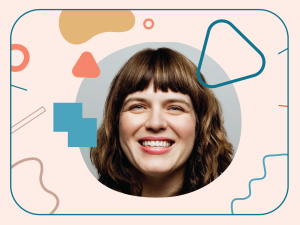
February 22, 2023
Claire Odom is a psychotherapist with ADHD. She’s also a disability inclusion consultant who has advice on navigating the workplace.
